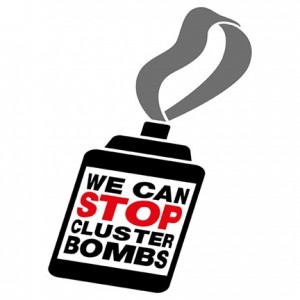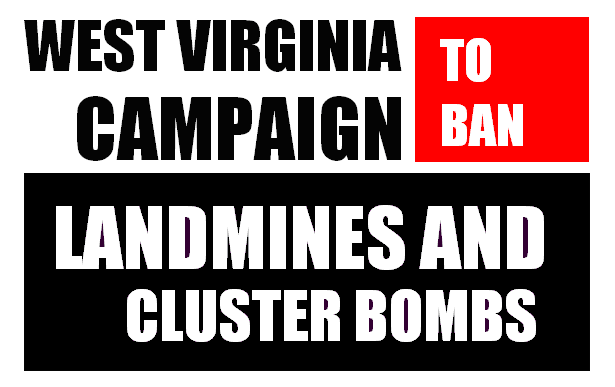 Cluster Munition Coalition (CMC) members across continents are stepping up their efforts to encourage the remaining signatories to ratify and non-signatories to accede to the Convention on Cluster Munitions.
Cluster Munition Coalition (CMC) members across continents are stepping up their efforts to encourage the remaining signatories to ratify and non-signatories to accede to the Convention on Cluster Munitions.
The CMC welcomes new members since the last meeting of States Parties (Guinea, Guyana, Palestine, Canada, Paraguay and South Africa) and the steps toward joining that have been taken in several other countries including in recent weeks by Slovakia, Madagascar, Iceland, and Mauritius. We are looking forward to seeing all of them at the Dubrovnik Review Conference in September as State Parties to the Convention.
The CMC condemns any use of cluster munition by any actor under any circumstance, including the recent use in Yemen, Syria, Ukraine, Sudan and Libya. None of these states are party to the Convention on Cluster Munitions. The CMC calls on the parties involved to immediately halt further use of cluster munitions. It commends those states that have already spoken out to condemn these instances of use. The CMC calls on all states to take action to discourage and condemn any use of cluster munitions to prevent further casualties and to protect the emerging norm against these indiscriminate weapons.
The CMC expects high level and active participation in the Dubrovnik Conference by the 116 nations that have joined the Convention on Cluster Munitions as well as strong participation by states that have yet to sign. In Dubrovnik, the CMC anticipates hearing about States Parties’ achievements and plans for overcoming implementation challenges in clearing cluster munition remnants, providing assistance to victims, destroying stockpiles, and adopting comprehensive national legislation implementing the ban on cluster munitions.
We expect the Dubrovnik Conference to send a clear message of strong commitment to the Convention until all States have joined and it is fully implemented. Such commitment should be expressed in a strong political declaration and forward-looking action plan as well as in national statements given at the high level segment of the conference on 7 and 8 September.
The CMC/WVCBL/PSALM urges states not party, ESPECIALLY THE UNITED STATES to join the Convention and to meet the challenge of 100 States Parties by the time of the Dubrovnik Review Conference proposed by the Costa Rican Minister of Foreign Affairs Mr. Manuel A. Gonzalez Sanz.
The Cluster Munition Coalition U.S. is calling on President Obama to commit to end U.S. use of cluster munitions and join the international ban as more than 100 nations have done. We have also launched this new website to increase awareness about the United States history and policy on cluster munitions.
The last publicly recorded use of cluster munitions by the U.S. was in Yemen in December 2009. There is no evidence of U.S. cluster munition use in the “Operation Inherent Resolve” military action against forces of the Islamic State or ISIL that began last year in Syria and Iraq, but U.S. policy still allows for cluster munition use. Several states parties to the Convention on Cluster Munitions are participating in this operation, including the government of Iraq. These states are legally obliged by Article 21 to promote the convention’s norms by discouraging any use of cluster munitions by states outside the convention.
Recently, administration officials have criticized civilian harm caused by the use of cluster munitions in Libya,South Sudan, Syria, and Ukraine. Like the United States, none of these states are party to the Convention on Cluster Munitions, which comprehensively prohibits cluster munitions and requires clearance of cluster munition remnants, as well as assistance to victims of the weapons. A total of 91 states have ratified the ban convention while another 25 have signed.
In addition to calling on the U.S. to end the use of cluster munitions, the March 30 letter urges President Obama to begin a review of U.S. cluster munition policy with the objective of identifying and overcoming any remaining obstacles to accession to the Convention on Cluster Munitions so that the U.S. can join as soon as possible.
U.S. policy on cluster munitions is laid out in the June 19, 2008 Department of Defense (DoD) directiveissued by then-Secretary of Defense Robert Gates. The policy commits the U.S. to prohibit the use of cluster munitions in 2018, except for the small portion of its stockpiles that have a failure rate of less than one percent. The Cluster Munition Coalition U.S. urges that the policy date of 2018 for instituting a ban on nearly all cluster munitions be accelerated and calls for a reexamination of the policy’s exception allowing continued use of cluster munitions resulting in a less than one percent unexploded ordnance rate.
The Cluster Munition Coalition U.S. also calls on the U.S. to start participating as an observer in regular meetings of the Convention on Cluster Munitions, starting with the First Review Conference in Dubrovnik, Croatia on September 7-11, 2015.
April 4 marked the International Day for Mine Awareness and Assistance in Mine Action. The U.S. is the world’s largest contributor to mine clearance and victim assistance programs around the world, which include the clearance of cluster munition remnants and assistance to cluster munition victims.
Human Rights Watch chairs the Cluster Munition Coalition U.S. and its sister initiative, the U.S. Campaign to Ban Landmines. Formerly known as the U.S. Campaign to Ban Landmines and Cluster Bombs, the Cluster Munition Coalition U.S. is the national affiliate of the Cluster Munition Coalition (CMC), the civil society engine behind the Convention on Cluster Munitions.
The name changed to Cluster Munition Coalition U.S. this year after the campaign websites were revamped. The new Cluster Munition Coalition U.S. website is: www.noclusterbombs.org while the campaign is on Twitter at @noclusterbombs.
